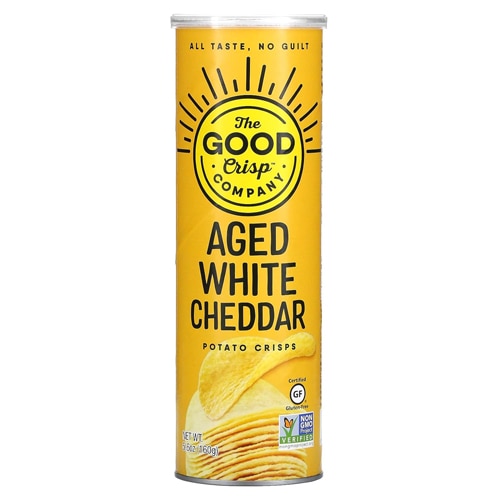Meeting with a Registered Dietitian (RD or RDN) for the first time might sound intimidating, but there’s no reason to feel this way! Dietitians are trained professionals with experience in food science and nutrition therapy who are ready to talk through your food and nutrition goals. They understand unique dietary needs – including busy schedules, meal-planning challenges and more. Dietitians hope not only to help you make more sense of food, but also to make eating easier and more fun.

Whether you’ve set up a
telenutrition session or will be consulting with a professional in person, here are some questions to consider asking your dietitian.
12 Questions to Ask a Dietitian
1. I don’t eat [blank], what nutrients should I be concerned about?
There are many reasons some of us need (or want) to forego certain ingredients in our diets. For example, you may have religious dietary restrictions, food intolerances, medical issues or you’re following a plant-based lifestyle. If you’re eliminating multiple food groups or avoiding traditional foods known for providing certain nutrients, it’s important to consult with a dietitian to make sure you’re achieving the right balance in your diet.
2. What beverages are good to drink besides water?
Thankfully, many options exist besides water for healthful sipping! A dietitian can not only provide ideas but also will help you understand fluid amount recommendations (which are especially good to know if you sweat a lot and/or are an avid exerciser!).
3. Can you clarify what I should look for on a food label?
Food labels contain a lot of information. There are numbers, percentages, marketing lingo, nutrition claims and certifications adorning every edge of packages. A dietitian can help you sort through the details, and point you towards what’s most important to look for. This can help you improve your nutrition – and helps make grocery shopping a breeze!
4. What are the best restaurant foods for my health?
When eating away from home, we may not be as aware of the ingredients in dishes, as we are when we prepare food ourselves in our own kitchens. With this in mind, your dietitian can direct you to yummy, exciting menu items at an array of fast or casual restaurant settings that are made with better-for-you, wholesome core ingredients.
5. How much food is right for me?
The amount of food or calories we need as individuals is based on several factors including height, weight, physical activity, gender, medical conditions and even our history of experiences with weight change. A dietitian can determine proper portions suited to your goals and in the right ratios between food types.
6. Does the time of day I eat really matter?
There’s been a lot of buzz in the past few years about properly timing what we eat (for example, with concepts such as “
intermittent fasting”). Although eating styles that dictate timing precision may be part of your health journey, what’s even more important is
what and
how much we’re eating. A dietitian can personalize this information for you during a visit.
7. I’ve just been diagnosed with [blank], where do I start?
Many chronic diseases (such as diabetes, cancer, cardiovascular disease, etc.) are influenced by our lifestyles and diets. Registered dietitians can be key to helping you adapt healthier eating patterns to improve outcomes of these conditions. Your dietitian can not only provide guidance for how to eat well given your circumstances, but he or she also can give you straight, practical advice on what to pick up at on next grocery shopping trip.
8. How do I eat at a party or when on vacation?
It’s important to remember that our eating habits are just that: habits. How we eat on a regular basis determines our actual eating patterns, not special events that happen occasionally in our lives. So, eat your birthday cake and enjoy yourself! If, however, you have a busy post-COVID social calendar, your dietitian can provide tips for how to eat well when you’re out on the town.
9. Can you tell me more about carbohydrates?
We sure can! Carbohydrates or “carbs” have been mostly vilified for the better part of the 21
st century. And guess what? They don’t deserve that kind of press. Carbs are found in many types of food: from fruits and vegetables, to
beans and
quinoa, to cakes and cookies. Your dietitian will clarify what carbohydrate-containing foods are the best to emphasize in your diet – and which ones we want to eat more modestly.
10. What products can you recommend?
Dietitians love food and can’t wait to share product suggestions. Innovative foods are always being developed, and tasty, better-for-you food are widely available in grocery stores and online destinations like
Vitacost.com. A dietitian wants to virtually “hold your hand” aisle-by-aisle to explore great food options that you might be missing on your regular grocery shopping trips.
11. Do you think I should also discuss my concerns with a therapist?
In a word, yes. Mental health professionals can better address the emotional and mental aspects behind our behaviors, including the link between psychology and our eating habits. A therapist or counselor (we recommend seeking out a clinical social worker or LPC-credentialed professional) can help break down barriers with challenges or hold ups we may have in putting good habits in place. Your dietitian can provide you with his or her opinion and may even be able to provide a direct referral, if a therapist could be advantageous to your care.
12. How frequently should I meet with a dietitian?
It depends on your circumstances, but normally a dietitian will want to meet with you every two weeks in the beginning, then decrease visits to monthly over the long-term. Dietitians are an important part of your healthcare team who should be involved in your care just like any doctor or specialist.
To get started with a registered dietitian, head to
Kroger.com to schedule a 1:1 telenutrition visit.
 Whether you’ve set up a telenutrition session or will be consulting with a professional in person, here are some questions to consider asking your dietitian.
Whether you’ve set up a telenutrition session or will be consulting with a professional in person, here are some questions to consider asking your dietitian.



